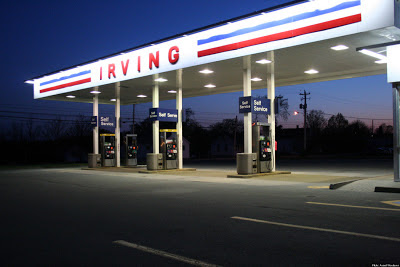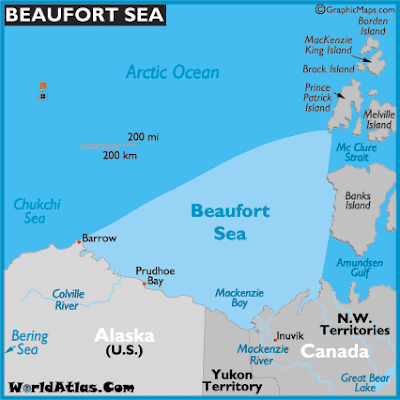From the big scrapbook of time, here’s a look at Canada in 1974--
 |
| Only 1,695 AMC Ambassadors are sold domestically this year. The nameplate that first appeared in 1927 will not return for 1975. |
January 1: The Canadian Stock Exchange and the Montreal
Stock Exchange merge.
January 6: Move over CBC and CTV, you’ve got company.
The Global Television Network hits the airwaves. At first, the nation’s third
English-language TV network is seen only in Ontario but the Calgary-based broadcaster will spread across
the country, becoming truly national when it starts broadcasting from Quebec
City in 1997. Newfoundlanders still won’t have a Global affiliate in 2008 but
can see many of the network’s programmes on NTV.
January 7: Bora Laskin is sworn in as Chief Justice of the
Supreme Court. He will hold the position until his death in 1984.
 |
| The Right Honourable Jules Leger and Queen Elizabeth II. |
January 14: Jules Leger is sworn in as Canada's 21st Governor General. The
career diplomat has been our Ambassador to Mexico, Italy, France and Belgium. As Vice-Regal, he will represent Elizabeth II, Queen of Canada.
 |
| Huge trucks haul loads oil-rich tar sand to refineries. |
January 14: The Alberta
government announces it will spend $100 million over the next five years to
develop the technology needed to extract crude oil from the Alberta Tar Sands.
 |
| Founded in Buctouche, New Brunswick in 1924, Irving Oil Limited will become a giant in the industry, retailing gasoline in the four Atlantic Provinces, Quebec, Ontario and the New England States. |
February 21: Ottawa tightens up immigration rules. Folks hopeful of living in Canada
can lo longer arrive in the country without a firm job offer in hand.
February 21: Hockey great and coffee shop entrepeneur Tim Horton
is dead at the age of 44, the result of an accident on the QEW (Queen Elizabeth Way). His new Pantera
crashes at 160 kilometres an hour. He leaves to mourn a wife and four children.
The autopsy will reveal that alcohol and painkillers played a role in his
death.
March 6: Federal Minister of Indian and Northern Affairs, Jean
Chretien, tells the press that there will be a two-year moratorium on drilling
for oil in the Beaufort Sea. Ottawa is concerned about environmental safety of the fragile Arctic eco-enironment and
it is noted there is no technology in existence to clean up after a disaster,
should one occur.
March 18: The first Indian reserve in the Northwest
Territories is created. The Dene territory is located near the town of Hay River.
March 19: All children eight years of age and under are
now guaranteed free dental service in Quebec.
 |
| The Juno statuette looked like this from 1970-1974. |
March 25: George Wilson hosts the Juno Awards, held in the
Centennial Ballroom at The Inn on the Park in Toronto. Anne Murray wins a Juno
for best female vocalist. Terry Jacks wins his Juno as best male vocalist.
 |
| The Pacific 66 stations in the four western provinces will become part of Petro-Canada in 1975. |
March 27: The price of a barrel of domestically-produced
crude oil will rise from $4 to $6.50 and that will make motorists' wallets a little lighter.
April 1: The CBC is told to cut commercials from all radio
and TV broadcasts within the next five years. By January of 1975, half of all
TV programmes aired in prime time must be Canadian in content.
April 3: An F3-strength tornado rips through Windsor, Ontario at 8.09 pm EST, killing
eight and injuring 12 at the Windsor Curling Club. A portion of the roof at
Chrysler’s Plant Three is torn away but production is not affected. A total of nine are killed and more than 20 people injured in Essex County by the deadly twister.
 |
| Uranium Mine (1938), is one A. Y. Jackson's most famous paintings. |
April 5: Artist A. Y. Jackson is
dead at the age of 91. He is the last of the famed Group of Seven, artists who defined the soul of Canadian art. Jackson will be buried on the
grounds of the McMichael Canadian Collection, near others in his circle, in
Kleinburg, Ontario.
April 15:A group of nine Quebec
women go wild when they learn they have won the $1 million grand prize in the very first
Canada Olympic Lottery ever to be drawn.
April 17: Saskatchewan's health plan now covers
the cost of prescriptions for all residents.
 |
| The Right Honourable Pierre Trudeau is leader of the Liberal Party and Prime Minister. |
May 8: The House of Commons passes
a non-confidence motion on the Liberal government’s budget tonight. It is the
first time in history a sitting government has fallen as the result of a budget debate. The Grits
have been sitting as a minority for nearly two years.
May 19: The government has fallen and so do the mighty Boston Bruins as the Philadelphia Flyers skate to the Stanley Cup in six games.
May 21: Ottawa cancels orders all future orders of
nuclear equipment to India after that Southeast Asian country exploded an 8-kilotonne
nuclear device.
 |
May 23: New Brunswick becomes the
first officially bilingual province.
From now on, all laws in the Picture Province will be drafted in both French and English and citizens will have the right to be served in the official language of their choice.
May 27: Ottawa announces its
intention to buy foreign-owned DeHaviland Aircraft of Toronto and Canadair of
Montreal and make them into profitable Canadian concerns.
 |
| Alanis' first album, Jagged Little Pill, will win six Junos and three Grammys in 1996. |
June 1: Twins Alanis and Wade
Morisette are born in Ottawa to schoolteacher parents. Alanis will grow up to
be a singer and songwriter with a slew of Junos and Grammy Awards that attest
to her singing ability.
 |
| This Royal Hudson steam locomotive had the honour of carrying King George VI and Queen Elizabeth across Canada during the 1939 Royal Visit. |
June 21: Canadian Pacific
Railroad Royal Hudson steam engine
Number 2860 was retired from service in 1959 but it will now have a new life as an excursion
train. The Royal Hudson will make the scenic trip from Vancouver to Squamish. Retired for a second time in 1999, the locomotive will be refurbished and returned to special service in 2009, to the delight of all who love the majesty of steam-powered locomotives.
June 29: Ballet superstar Mikhail
Baryshnikov defects from the Soviet Union when the Bolshoi Ballet tour arrives
in Toronto.
Canada Day: More than 250
icebergs have been sighted off the east coast of Newfoundland. They come from
Greenland. The average speed of these majestic mountains of ice is 17
kilometres a day.
 |
| The Honourable Ralph Steinhaur is Alberta's 10th Lieutenant Governor. |
July 2: Ralph Steinhauer becomes the first Native
Canadian to be named Lieutenant Governor when he is appointed to serve as the
Queen’s representative in Alberta. His heritage is Cree.
 |
| Canada's new ocean frontiers cover 1.84 million square hectares (7.1 million square miles). |
July 4: Canada will extend its
coastal jurisdiction from 19 kilometres (12 miles) to 331 kilometres (200 miles) offshore to include an
‘economic zone,’ says Federal Fisheries Minister, Jack Davis.
July 8: The Liberals have been in
the minority government doghouse long enough. Sitting at the CBC election desk, senior newsreader Knowlton Nash calls
a majority government for the Grits. Final count will be 139 seats for
Trudeau’s Liberals, 96 seats for Robert Stanfield’s Tories, 16 seats for David
Lewis’ New Democrats, 12 seats for the Creditistes and Leonard Jones, a vociferously
anti-Francophone lawyer from Moncton, will sit as an independent in the House of Commons.
July 30: As of today, French is
the official language in Quebec. The vote in favour of Bill 33 in the National Assembly is 92 to
10.
August 9: Nine Canadian UN
Peacekeepers are killed in Syria when their unarmed DeHavilland Buffalo transport plane is shot out
of the sky by three Syrian missiles.
August 14: Natasha Henstridge is
born in Springdale, Newfoundland. She will grow up in a mobile home park in
Fort McMurray, Alberta and become a supermodel by age 15, appearing on the
cover of Cosmopolitan. She will give
up modeling for the Hollywood and appear in such flicks as Species and The Whole Nine
Yards.
August 15: The Toronto Zoo opens
to the public. Sprawling over 287 hectrares it will be home to 5,000 animals
who will be seen by 1.2 million visitors annually.
 |
| Cindy Nicholas will graduate from the University of Toronto and the University of Windsor before being elected in1987 to serve as a Liberal MPP at Queen's Park. |
August 16: Cindy Nicholas climbs
out of Lake Ontario to the sound of wild cheers and boat horns. The 16-year old
native of Scarborough, Ontario has set a record for swimming the 52-kilometre
lake in 15 hours and 18 minutes.
September 17: The Horsemen have
something new to deal with as the first four women are sworn in as officers of
the Royal Canadian Mounted Police. A female Mountie will earn $10,794 a year
and yes; she will have to get her man.
 |
| David Lewis, Ed Broadbent and Stanley Knowles. |
September: The New Democratic
Party has chosen a new leader at its convention. Ed Broadbent is a teacher. He
replaces David Lewis, who lost his seat in the recent federal election.
September 26: Support staff at
the University of Saskatchewan walk off the job for the first time since they were organized into a union in 1945. They demand a pay rise that
matches inflation rates and higher wages for women who are being paid only a
little more than minimum wage. The university settles with the workers on
October 11 after a 15-day strike.
November 15: Federal, Quebec
representatives along with Inuit and Cree leaders from Northern Quebec sign the
James Bay Agreement. Hunting, fishing, mineral rights and hydroelectric
development are secured in this 647,000 square kilometre area of northern
Quebec. The territory is about one-third of Quebec as a whole or roughly the
size of the American State of Texas.
November 24: The 62nd Grey Cup belongs
to the Montreal Alouettes as they whip the Edmonton Eskimos 20 to 7.
December 20: The nation grows and
so does Parliament. There will be 282 seats In the House of Commons when the
next election is called. That will be up from the current 264 seats.
 |
| The Pontiac Ventura will sell 12,287 units across Canada for calendar year 1974. |
December 31: The Top Ten most
popular selling cars for the calendar year are the full-size Chevrolet, the
Plymouth Valiant, the Dodge Dart, the full-sized Ford, Toyota, the Ford Torino,
the Chevrolet Malibu, Datsun, the Chevrolet Vega and the Oldsmobile Cutlass.

























